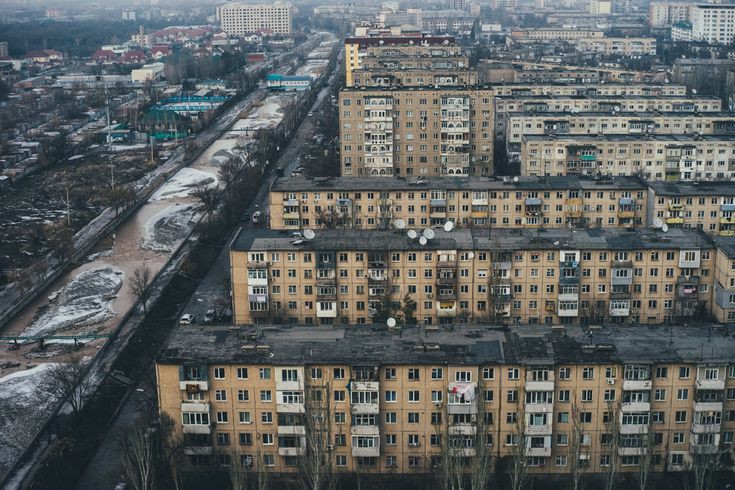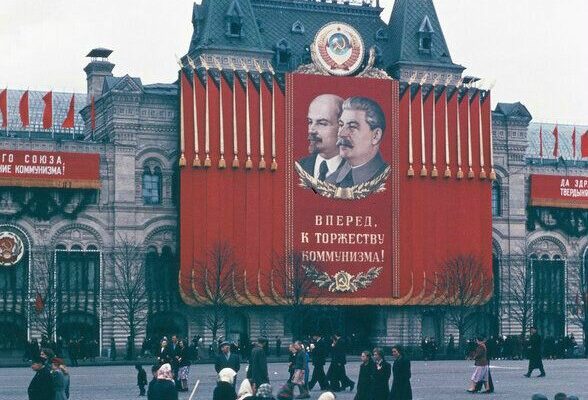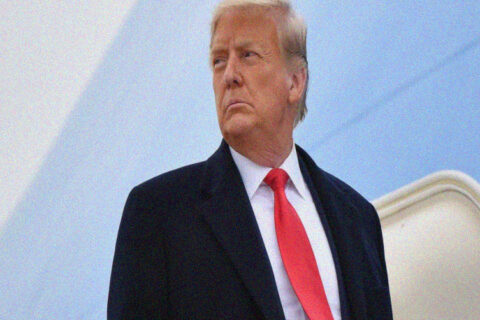From the outset, I want to clearly state that I count the Russians and communists as two separate groups and I’m going to explain why the Russians won first. They got their country back. The evil forces that had killed millions of Ukrainians, Russians, and even the Tsar’s family were removed from power and Christianity once more openly became the rule in Russia. With their recent constitution, Russia seems to be continuing in a positive direction. I will caveat this by pointing out that Putin does have a lot of issues, particularly his closeness with Roman Abramovich and the other oligarchs, but this is far better than under the USSR.
Now, why did the communists win? Initially, the battle seemed clear: you had a spiritual battle between Christians on one side and communists on the other. That’s a winning argument – communists are godless atheists who killed the Tsar, raped nuns, destroyed the family and turned men into interchangeable cogs. However, the American elite and capitalist systems generally would embrace the materialism of communism and also turn all men into cogs.
To “win” the Cold War, the political elite decided to emphasize GDP and gave up the moral high ground. You may ask, “but Ethan, couldn’t they say ‘not only do we have higher GDP but we also didn’t kill the Tsar?‘” Sure, someone could. Some folks have, but it’s an afterthought and clearly not what they truly care about. Rather than seeing capitalism as the best way to improve the material well-being of people, it became the goal itself. Whereas before, the focus of life was family, faith, and folk (and the method by which you took care of your family was capitalism). Instead, capitalism became the goal. Family, faith, and folk became secondary, tertiary, or a non-factor. All hail the GDP.
With the focus on the GDP, everything else went out the window. This fixation is what became neoconservatism and the ideology of William F. Buckley’s National Review. As others have pointed out, many of Buckley’s allies were former communists who “recanted” their former beliefs. Buckley and many other conservatives are fans of Ayn Rand’s Atlas Shrugged, despite the fact that this philosopher also seemed to view men purely as economic units and famously said to Buckley upon meeting him, “Mr. Buckley, you arrrr too intelligent to believe in Gott.”
The beauty and diversity that existed in the West before the Cold War was replaced with a sense of uniformity and sameness. Look at modern sedans: they’re all almost identical. Look at the architecture of the communists and the capitalists. Before the Cold War, Western architecture was beautiful. Now, contemporary Western architecture is as equally soul-crushing to the Soviet architecture. Roger Scruton even discussed the misery of modern Western architecture (albeit without making this parallel) in his Why Beauty Matters (starting at about the 17 minute mark). Modern architecture in the West became “utilitarian” as a means of being more practical. Theoretically, this would be more economically efficient and good for the GDP. This is wrong on two levels: it isn’t really true (repair costs tend to be rather high on such buildings) and no one even wants to live in them because they’re so damn ugly.

From the moment the West began the materialistic argument, they lost. It was an admission that Western powers were no better than communist ones. Western leaders kill or invade other countries to impose their economic will and they separate families (through divorce and abortion) just like the communists did (through gulags and abortion), but they argued that there will be more cars in capitalist countries and slightly more caloric intake, therefore capitalism is better. It is for this reason that the Cold War made the U.S. look even more immoral. The embargoes, assassinations, and various wars against Third World countries by the U.S. government seemed to be admissions that communism could work, but the U.S. had to starve and kill people to stop them from embracing communism.
I’m reminded of a discussion about immigration where one person pointed out that immigrants take more tax money than they contribute. Another person responded to that by saying something to the effect that, “once you reduce immigration to GDP, you admit that your culture and your family’s safety has a price.” That’s the point about the main anti-communist argument: if suddenly the communist economy became more efficient than capitalism, they would have to start endorsing communism. You may say folks would never do that, but the reality is the neocons turn on their principles all the time. National Review’s treatment of homosexual marriage and transgenderism is probably the best example of this heel turn. They’ll fight against evil until it’s legal, but once it’s legal they’ll defend it rather than try to repeal it. This is because their only principle is what is best for the market.
We see these parallels increasingly often. A Hungarian once told me that the Communist Party had created new history books that pretended the Huns had only been in the land for a few hundred years as a way of weakening their sense of identity so they wouldn’t fight back. The American Empire alienates the people of the South from their heritage, demonizing their heroes and ancestors. The American Empire even denigrates the people that are meant to be universal heroes: every founder is “racist” or “sexist” or “classist,” so you’re not supposed to respect any of them. We have no heroes in our past we can admire, we have no right to exclude people from our lands, and we are constantly alienated from our faith. How is this any different than communism?
The only real difference remaining between the capitalist and communist systems (aside from the material conditions) is the fear of death in the USSR, but that is something which is slowly creeping in the U.S. Aside from the coronavirus, think about the doxxing campaigns in the last couple of years and the people that lost the means to take care of their families. Think of the people who have killed themselves because they can’t find work after their views have been made public to the mob. Think about what the future holds when democrats get another president and appoint malignant ethnocrats to the judiciary to give out blank checks to the other branches. If our cities are burned and destroyed by antifa and BLM rioters, is it unlikely they’ll begin political assassinations in the future?
The solution to the Communist Question is not simply “free markets.” We should reject both systems. We don’t have to live like the Amish or go totally back to the pre-industrial or arcadian state, but we do need to reject the communist and hyper-capitalist arguments. There is something magical about stopping off in a local cafe, pub, or farmers market that has resisted the national and international chains. You experience a unique local flavor and culture. However, these are most likely to exist in states which protect these small businesses. In a hyper-capitalist system, they must fall and be replaced by Starbucks, Applebee’s, and Wal-Mart.
We need to protect small businesses and return to localized supply chains. We need to reject false dichotomies and embrace ourselves and what is truly best for our people. Communism may have won against capitalism, but it will not triumph over us.
A Southern man trying to make a good Southern plan.
Deo vindice!






the bolshevik commies won because their comrades here imported them en masse after WWI; where they took over our institutions, academic, governmental, and media. the horror is.. we let them.
“the (((bolshevik commies))) won because their (((comrades))) here imported them en masse after WWI; where (((they))) took over our institutions, academic, governmental, and media. the horror is.. we let them.
There – fixed it for ya.
Another main commonality is over-centralization. Schools, media, along with fed/commerce need anti-trust techniques leveled at them to decentralize. The groups are not the best but an increasingly centralized power protects them and facilitates their dominance (they cheat); and of course “…absolute power corrupts absolutely.”
I recall in studying the Soviet block that things like alcoholism and suicide rates were sky high. (They had virtually no drug abuse, interestingly, as the West.) If these are indicators of the health of a society, the US is on a downward spiral. Lastly, as someone that visited Eastern Europe in the 90s soon after the fall, I can remember how ugly and polluted the cars and modern buildings were–the black filth from car exhaust all over them. And yet I recall the promise of the old buildings in the malaise, and how tourism would certainly return after the shake-off of the last vintages of the totalitarianism. It reminded me of what Charleston once looked like, and may look like again from the latest war, the culture war.